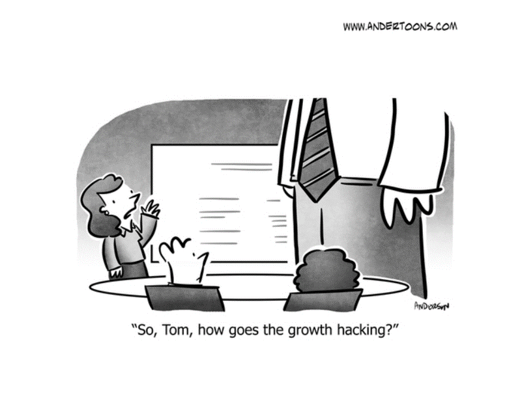
DP Solutions is honored to receive the following new awards and recognitions this month:
|
|
Baltimore Business Journal Fast 50 - Fastest Growing Private Companies
|
.png?width=149&name=RR_MD_Winnerlogo%20(3).png) |
The Daily Record Reader Rankings Winner: * Best IT Outsourcing Firm * Best Cyber Security Company |
 |
Baltimore Business Journal Largest |
Did you know that small businesses are more likely to be targeted by cybercriminals than any other business or organization? It’s true! While we hear about major breaches on the news, we don’t get to hear the stories of the businesses that struggle with hacking attempts and cyber-attacks.
Hackers love to go after small businesses for one very big reason: small businesses are less likely to invest in top-notch (or even worthwhile) cyber security. Hackers love this vulnerability.
According to the Verizon 2019 Data Breach Investigations Report, 43% of cyber-attacks hit small businesses. The reason comes down to many factors, but there are two in particular that hackers really dig into when going after targets: lack of resources and lack of knowledge. Of course, there’s more to this story, as hackers also look at a business’s customer base and the type of data the business shares online.
A lot of small businesses are also relying more on the cloud (and this is the trend moving forward), but then they do little to keep their line of communication with the cloud storage, or just the cloud storage itself, secure. According to Symantec, a lot of businesses that rely on the cloud also fail to rely on strong encryption software. They just share their data to the cloud and let that be that.
Hackers attack small businesses because they want money. Hackers go after targets they can profit from, whether they hold a business’s data hostage and demand a ransom (and get that ransom – hackers got $460,000 from Lake City, Florida, officials after a ransomware attack on government computers, and that wasn’t the only Florida city to pay!), or by stealing customer data and either selling it on the dark web or black market, or using it for themselves.
The Verizon report also looked at the types of businesses that are targeted. The top three are:
They go after these types of businesses because this is where they can make their money – and it’s where they’ve discovered the most vulnerability. However, while these types of businesses represent the top three, there are many more. Every type of business is targeted. Some businesses make it past the attack unscathed, but many don’t. Their data is compromised in one way or another.
Why are small businesses targeted so much? It’s a numbers game. Hackers know most small businesses lack good cyber security. This makes these businesses easier targets. Target enough of them, and you’re going to make some serious money (from selling stolen data or paid ransoms).
So, what can you do about this? How can you protect your network? First and foremost, you have to realize YOU are a target. It doesn’t matter if you’ve never been hacked before. It just means the hackers haven’t gotten to you yet. Once you realize this, you can go to work and get your business ready for the eventual attack.
This is where a risk assessment can do a lot of good. You may already have some security measures in place, but do you know how effective those measures are? You need to know where your holes are so you can plug them and then reinforce them. You don’t want just a wall around your business, you want an entire ocean.
But it doesn’t end there. One of the most powerful tools against hackers and cybercriminals is knowledge. Next to securing your business, the best thing you can do is train your employees on understanding cyber security and the threats that exist to harm the business they work for. Your team MUST know how to identify phishing schemes, fraudulent websites and virus scams, then stay regularly updated on the threats out there. (And don’t forget using complex passwords that are locked away in a password vault or manager to add another layer of security).
On top of this, work with an IT team who knows what they’re doing. It’s one thing to tackle this all by yourself, as many businesses do, but it’s another to work with an experienced IT security firm. If you go it alone, you might miss something or you might not fully understand the security you have in place. Having an outsourced team of pros means you’re one step ahead of the hackers.

5 Ways Smart People Blow The Close
Geoff Smart
When I meet with a team for a coaching session, I often find that everyone looks to me for all the answers. While I am there to help them get their priorities together and align their business and company culture, I’m NOT there to hold their hand through every decision that needs to be made. That’s where the team leaders come in.
 I look at my job as the “teach a man to fish” principle: I teach them how to think like I do so they can continue to have insightful and productive conversations when I’m not there. I want the leaders in my member companies to leave coaching sessions feeling comfortable about pushing their employees to be better, like I push them in the session. That is the ultimate measure of success for any business coach.
I look at my job as the “teach a man to fish” principle: I teach them how to think like I do so they can continue to have insightful and productive conversations when I’m not there. I want the leaders in my member companies to leave coaching sessions feeling comfortable about pushing their employees to be better, like I push them in the session. That is the ultimate measure of success for any business coach.
Here are a few key characteristics of a business coach that all leaders can and should adopt.
Listening
Hearing is the physical act of sound going into your ears, but listening is comprehending those sounds. The only way I can help people and groups improve is by knowing what works well and what their pain points are. They may not always say things you want to hear, but it’s important that you not only hear them but truly listen. Don’t immediately start problem-solving your way out of the conversation or you’ll miss what’s truly important.
Looking For Weaknesses
As leaders, we sometimes want to ignore weaknesses and problems because, frankly, it can be tough to admit they exist. You may hold some or all responsibility for them. But that’s how a leader can push his or her company forward – by taking a high-level view and objectively finding the areas that need to be improved.
Finding Solutions
After pinpointing shortcomings, figure out how to repair and strengthen them. It’s not enough to acknowledge them; you also need to find solutions. Push your company or leadership team to sit down and brainstorm together. It’s the best way to get everyone talking and to get others’ perspectives on what will best address each issue. These sessions should be a regular part of the business’s proceedings, not just when I’m there coaching.
Learning Continuously
It’s helpful to know what leaders are doing in other companies. Read books and articles to see how others have improved their companies. Their solutions may work for you too, or they may spawn a brand-new idea you can implement. Even business coaches don’t have all the answers, so take advantage of the world of resources at your fingertips to find a way around any roadblocks.
Leaders should never stop pushing and growing. That mentality will transfer to your team – after all, they are the ones who help keep your business going. Think, “What would Andy do?” and apply these principles in all meetings and company get-togethers, not just quarterly planning meetings. That’s how the student can become the master.
 Geoff Smart is chairman and founder of ghSMART. Geoff is co-author, with his colleague Randy Street, of the New York Times best-selling book, Who: A Method For Hiring, and the author of the No. 1 Wall Street Journal best seller Leadocracy: Hiring More Great Leaders (Like You) Into Government. Geoff co-created the Topgrading brand of talent management. He is the founder of two 501(c)(3) not-for-profit organizations. SMARTKids Leadership Program™ provides 10 years of leadership tutoring, and the Leaders Initiative™ seeks to deploy society’s greatest leaders into government. Geoff earned a BA in Economics with honors from Northwestern University, and an MA and PhD in Psychology from Claremont Graduate University.
Geoff Smart is chairman and founder of ghSMART. Geoff is co-author, with his colleague Randy Street, of the New York Times best-selling book, Who: A Method For Hiring, and the author of the No. 1 Wall Street Journal best seller Leadocracy: Hiring More Great Leaders (Like You) Into Government. Geoff co-created the Topgrading brand of talent management. He is the founder of two 501(c)(3) not-for-profit organizations. SMARTKids Leadership Program™ provides 10 years of leadership tutoring, and the Leaders Initiative™ seeks to deploy society’s greatest leaders into government. Geoff earned a BA in Economics with honors from Northwestern University, and an MA and PhD in Psychology from Claremont Graduate University.
This report reveals what every business owner should know about
 |
Important! We hate spam as much (or more!) than you and promise to NEVER rent, share, or abuse your e-mail address and contact information in any way. |

Anderson Fire Protection (AFP) is a leader in the fire protection industry. Established in 1989, AFP has grown to a full-service fire protection company, offering fire sprinkler installation and inspection, fire alarm installation, inspection, and monitoring, and fire sprinkler, fire alarm design and consulting.
AFP’s management team has over 100 years combined experience in fire protection. The organization prides themselves on their versatility and ability to design, install, and service systems of every type. AFP’s work is featured in properties of every type, including light commercial, mixed use, multi-family residential, and industrial properties.
They have installed wet systems, dry systems, deluge, or pre-action, along with a large variety of system components and fire pumps. AFP also provides installation, service, and monitoring of fire alarms.
AFP was in need of a true technology partner that offered proactive support and was readily available when issues arose. DP Solutions Managed IT Services fit the bill and AFP became a part of DP Solutions’ client family in August 2018.
To learn more, visit https://www.andersonfire.com